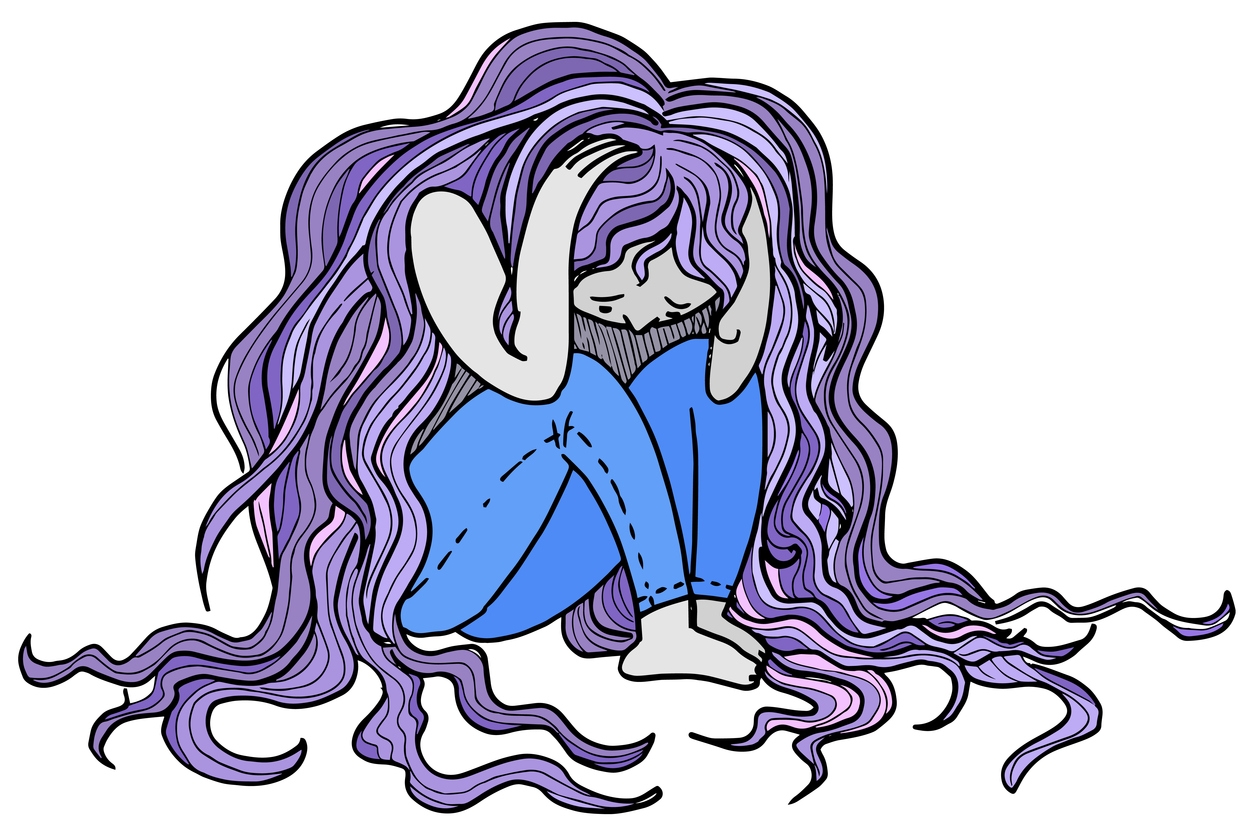Ever since you were a little kid, you’ve been there to help your friends. From mastering the monkey bars to surviving relationship breakups, you’ve been a pillar of support for the important people in your life over the years. But when a friend opens up about a mental health issue they are facing, things get a bit more complex. Perhaps they confessed to feeling anxious and sad 24/7 and don’t know what to do about it. Or maybe they aren’t eating much and are losing a scary amount of weight. Of course, you want to help—but how?
It can be challenging to know the best way to support someone who is struggling with mental health, but now more than ever your friendship is needed. “As a friend, you are usually the first person to see that something is wrong and to say something,” says Kashmira Rustomji, M.D., a child and adolescent psychiatrist at Mount Sinai Adolescent Health Center. Read on to learn what steps you can take to help a friend struggling with a mental illness.
1. Be Aware of the Signs
Not everyone feels comfortable discussing mental health, says Rustomji. But even if your friend doesn’t come flat out and say there is a problem, you may pick up on some clues yourself, such as:
- Acting extremely sad or withdrawn for more than two weeks
- Not wanting to spend time with friends or family
- Showing signs of self-harm, or the idealization of hurting themselves
- Trying to kill themselves, or making plans to do so
- Avoiding eating or throwing up
- Losing or gaining weight
- Not taking care of physical hygiene or appearance
- Using drugs or alcohol frequently
- Seeing or hearing things that aren’t real
- Remember, these warning signs don’t necessarily mean that your friend has a mental illness, but if any of the items on this list sound familiar, use this as an opportunity to check in with your buddy.
2. Let Them Know They’re Not Alone
Use a gentle approach when talking to your friend and ask open-ended questions. For example, you could say: “I’ve noticed that you haven’t wanted to hang out after school recently. Is everything OK?”
“Simply letting a friend know you care can make a big difference,” says Mary Young, MSW, a professional development specialist with Mental Health America of Greater Houston. “People with a mental illness can feel very isolated. Learning that someone is there for them can go a long way toward helping them open up.”
What you shouldn’t do is minimize the situation. Even if you and your friend usually joke around with each other, it’s not appropriate to make light of a mental health condition. In fact, it could make them feel even more alone. Avoid phrases like, “toughen up,” “snap out of it,” or “you’ll get over it soon.” Instead, try to be empathetic, saying things like “that sounds really tough” and “it must be hard trying to get through this.”
3. Just Listen
Once you’ve approached your friend and asked if something’s wrong, it’s time to sit back and listen. “It’s important to remember that some people want to talk while others may prefer to keep their thoughts to themselves,” says Young. “Pushing someone to share their feelings can cause more harm than good.”
If your friend doesn’t want to chat, say that’s OK and you’ll still be there to talk later on if anything changes. If they choose to open up to you about the situation, listen without judgment and resist the urge to give advice (that’s what a therapist is for). Be sympathetic and understanding, and ask if there’s anything you can do to help. Ultimately, just being available to talk to may be the best thing you can do.
4. Know When to Ask for Help
As much as you want to support your friend, you’re not a mental health expert, and these illnesses are often best treated by a professional. If you’re worried that your friend is unsafe or could themselves, it’s important to ask an adult for help. Even if your friend swears you to secrecy, it’s OK to tell a trusted adult if it means preventing something bad from happening. You could go to a parent, teacher, coach, or a youth group leader and let them know what’s going on. If you think your friend is in immediate danger (talking about suicide or self-injury), call 9-1-1. Don’t worry about making your friend mad and don’t feel foolish for overreacting: You are doing the right thing to keep everyone safe.
5. Take a Breath
Sometimes helping a friend can become overwhelming. You might start feeling sad, anxious, or annoyed, or even stop taking care of your own health. Although understandable, this will only make the situation worse. “It’s like how on airplanes you’re advised to put your own oxygen mask on before assisting others,” says Rustomji. “In order to help someone with a mental illness, you have to take care of yourself first.”
Remember, it’s ultimately not your job to fix the problem. It’s OK to tell an adult and to encourage your friend to talk to an expert who can suggest a lot of time-tested ways to handle the situation. Continue being supportive, even if your friend becomes distant. Sometimes, being a friend means making tough decisions about what is best for both of you in the long run, even if in the short term the other person doesn’t agree.
Special thanks to our experts: Dr. Kashmira Rustomji, M.D., child and adolescent psychiatrist, Mount Sinai Adolescent Health Center; Mary Young, MSW, professional development specialist, Mental Health America of Greater Houston






